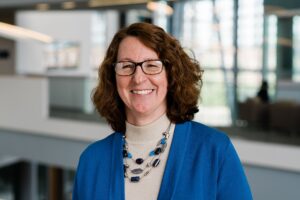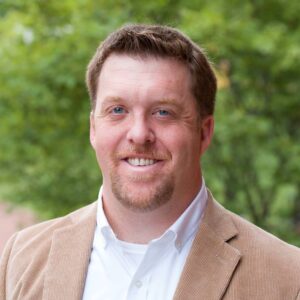Preconference Workshops
The Leadership in Higher Education Conference offers four preconference workshops. The cost is $349 per workshop. The workshops will be held prior to the start of the conference, Thursday, October 2, from 1:00 – 3:30 PM.
Enrollment is offered during conference registration.
If you have already registered for the conference and would like to add a workshop to your registration, call 608-246-3590 to enroll.
All Preconference Workshops will be held Thursday, October 2, 2025 from 1:00 – 3:30 PM
We Have to Talk: Strategies to Build Understanding, Enhance Engagement, and Navigate Difficult Conversations
Presented By Lynne A. Texter, PhD, Associate Professor Emerita, La Salle University, and Senior Consultant, Summit Search Solutions
Higher education leaders at every level and in every division must communicate effectively with a wide variety of colleagues and other internal and external stakeholders to support and advance strategic goals/initiatives and to animate the institutional mission. In order to strengthen your work and also be better prepared to avoid or mediate the negative behaviors and communications that impede or stall progress, you need to pursue every opportunity to improve your ability to communicate to foster understanding, enhance engagement, and build constructive relationships. This workshop will expand your understanding of how you can communicate more effectively and provide guidance about how you can put this knowledge into practice at your institution. You’ll learn about different communication approaches to enhance understanding and engagement so you can work more successfully with others, including those who are resistant to change/new ideas and those who have different and/or difficult styles. We’ll also provide a framework for how to prepare for and facilitate difficult conversations to address challenges and pursue opportunities to yield more positive outcomes.
Know your presenter:
 Lynne A. Texter, PhD, is Associate Professor Emerita at La Salle University and a Senior Consultant with Summit Search Solutions. An experienced leader, consultant, and award-winning educator with experience in the US, Czech Republic, Switzerland, and Greece, Texter teaches courses, facilitates trainings, and consults with corporations, higher education institutions, and nonprofit organizations on a variety of topics, including leadership, relationship-building, difficult conversations, effective workplace communication, and change management. Texter’s previous roles include interim Provost and Vice President of Academic Affairs, Associate Provost, interim Dean of the School of Arts and Sciences, Special Assistant to the President for Strategic Initiatives, and Department Chair.
Lynne A. Texter, PhD, is Associate Professor Emerita at La Salle University and a Senior Consultant with Summit Search Solutions. An experienced leader, consultant, and award-winning educator with experience in the US, Czech Republic, Switzerland, and Greece, Texter teaches courses, facilitates trainings, and consults with corporations, higher education institutions, and nonprofit organizations on a variety of topics, including leadership, relationship-building, difficult conversations, effective workplace communication, and change management. Texter’s previous roles include interim Provost and Vice President of Academic Affairs, Associate Provost, interim Dean of the School of Arts and Sciences, Special Assistant to the President for Strategic Initiatives, and Department Chair.
A Toolkit for Grading Reform at Scale
Presented By Josh Eyler, Director of the Center for Excellence in Teaching & Learning, Director of the Think Forward Quality Enhancement Plan, and Clinical Assistant Professor, University of Mississippi
We are currently in the midst of one of the most fruitful, effective periods of grading reform in our country’s history, both in K-12 and in higher ed. At many of our institutions, faculty are experimenting with a variety of alternative grading strategies and are having success, but many are eager to see more widespread change at the department and institutional levels. This preconference workshop provides attendees with a rationale for change, with research-based tools for advancing grading reform initiatives at scale, and with strategies for moving the conversation forward.
Know your presenter:
 Josh Eyler is the Director of the Center for Excellence in Teaching & Learning and Director of the Think Forward Quality Enhancement Plan at the University of Mississippi, where he is also Clinical Assistant Professor of Teacher Education. He previously worked on teaching and learning initiatives at Columbus State University, George Mason University, and Rice University. A sought-after speaker for his expertise about the science of learning and about compassion in education, especially in connection with students, grades, and mental health, he has spoken at college and universities across the country, including Yale University, the University of Texas, and Johns Hopkins University. Eyler is the author of the new book Failing Our Future: How Grades Harm Students and What We Can Do About It (Johns Hopkins UP, 2024) and How Humans Learn: The Science and Stories behind Effective College Teaching, which in 2019 Book Authority named one of the “100 Best Education Books of All Time.”
Josh Eyler is the Director of the Center for Excellence in Teaching & Learning and Director of the Think Forward Quality Enhancement Plan at the University of Mississippi, where he is also Clinical Assistant Professor of Teacher Education. He previously worked on teaching and learning initiatives at Columbus State University, George Mason University, and Rice University. A sought-after speaker for his expertise about the science of learning and about compassion in education, especially in connection with students, grades, and mental health, he has spoken at college and universities across the country, including Yale University, the University of Texas, and Johns Hopkins University. Eyler is the author of the new book Failing Our Future: How Grades Harm Students and What We Can Do About It (Johns Hopkins UP, 2024) and How Humans Learn: The Science and Stories behind Effective College Teaching, which in 2019 Book Authority named one of the “100 Best Education Books of All Time.”
Know Thyself: Building Your Leadership Insight Engine
Presented By Dr. Stephanie Delaney, Vice President of Instruction, Renton Technical College
One of the main reasons that leaders fail is because of a lack of self awareness or emotional intelligence. In this workshop, you will dive into four popular leadership assessments, reviewing the results for key insights in how you manage yourself and how you work with others. As a bonus, we’ll use the results to build a custom AI tool that will enable you to generate AI content grounded in your personal leadership approach.
Know your presenter:
 Dr. Stephanie Delaney is the Vice President of Instruction at Renton Technical College. Dr. Delaney has a strong background in Guided Pathways and eLearning and she has spoken nationally on issues related to leadership, equity, technology, and effective online teaching and learning. She is an emerging expert in the use of AI for leaders. Delaney earned her PhD in Higher Education Leadership and Distance Learning at the University of Nebraska at Lincoln. She also holds a law degree from the University of San Diego School of Law and a master’s degree in Environmental Law from Vermont Law School.
Dr. Stephanie Delaney is the Vice President of Instruction at Renton Technical College. Dr. Delaney has a strong background in Guided Pathways and eLearning and she has spoken nationally on issues related to leadership, equity, technology, and effective online teaching and learning. She is an emerging expert in the use of AI for leaders. Delaney earned her PhD in Higher Education Leadership and Distance Learning at the University of Nebraska at Lincoln. She also holds a law degree from the University of San Diego School of Law and a master’s degree in Environmental Law from Vermont Law School.
Last Mile: Where Higher Ed Needs to Show Value in an AI World
Presented By Hollis Robbins, Professor, University of Utah
Universities can no longer defend a business model where students pay tuition for a human to deliver information that an AI can personalize for each learner instantaneously. Once AI can deliver the entire general education curriculum, the university’s value proposition must shift from introducing students to knowledge to guiding students at the frontier of knowledge. In the AI era, undergraduate education should be organized around three questions: What do we know? How do we know it? And what remains unknown? This pedagogy requires direct engagement with primary sources, raw data, and research methodologies. If US universities are to remain competitive, students must work at the frontier. It is the only part of education that cannot be automated, and the only thing worth the price of tuition.
Know your presenter:
 Hollis Robbins is professor of English at the University of Utah where she was Dean of Humanities from 2022-2024. Previously she was Dean of Arts & Humanities at Sonoma State University (2018-2022). Robbins was an early adopter of AI, doing research on LLM-generated poetry in 2020. She writes and speaks regularly on the role of university leaders in ensuring academic freedom and free speech on campus, as well as on AI’s growing challenges to the current structure of higher education. Robbins holds a PhD in English from Princeton University; an MPP from Harvard’s Kennedy School of Government; and a BA from Johns Hopkins University, where she was also on the faculty (from 2006-2018).
Hollis Robbins is professor of English at the University of Utah where she was Dean of Humanities from 2022-2024. Previously she was Dean of Arts & Humanities at Sonoma State University (2018-2022). Robbins was an early adopter of AI, doing research on LLM-generated poetry in 2020. She writes and speaks regularly on the role of university leaders in ensuring academic freedom and free speech on campus, as well as on AI’s growing challenges to the current structure of higher education. Robbins holds a PhD in English from Princeton University; an MPP from Harvard’s Kennedy School of Government; and a BA from Johns Hopkins University, where she was also on the faculty (from 2006-2018).
